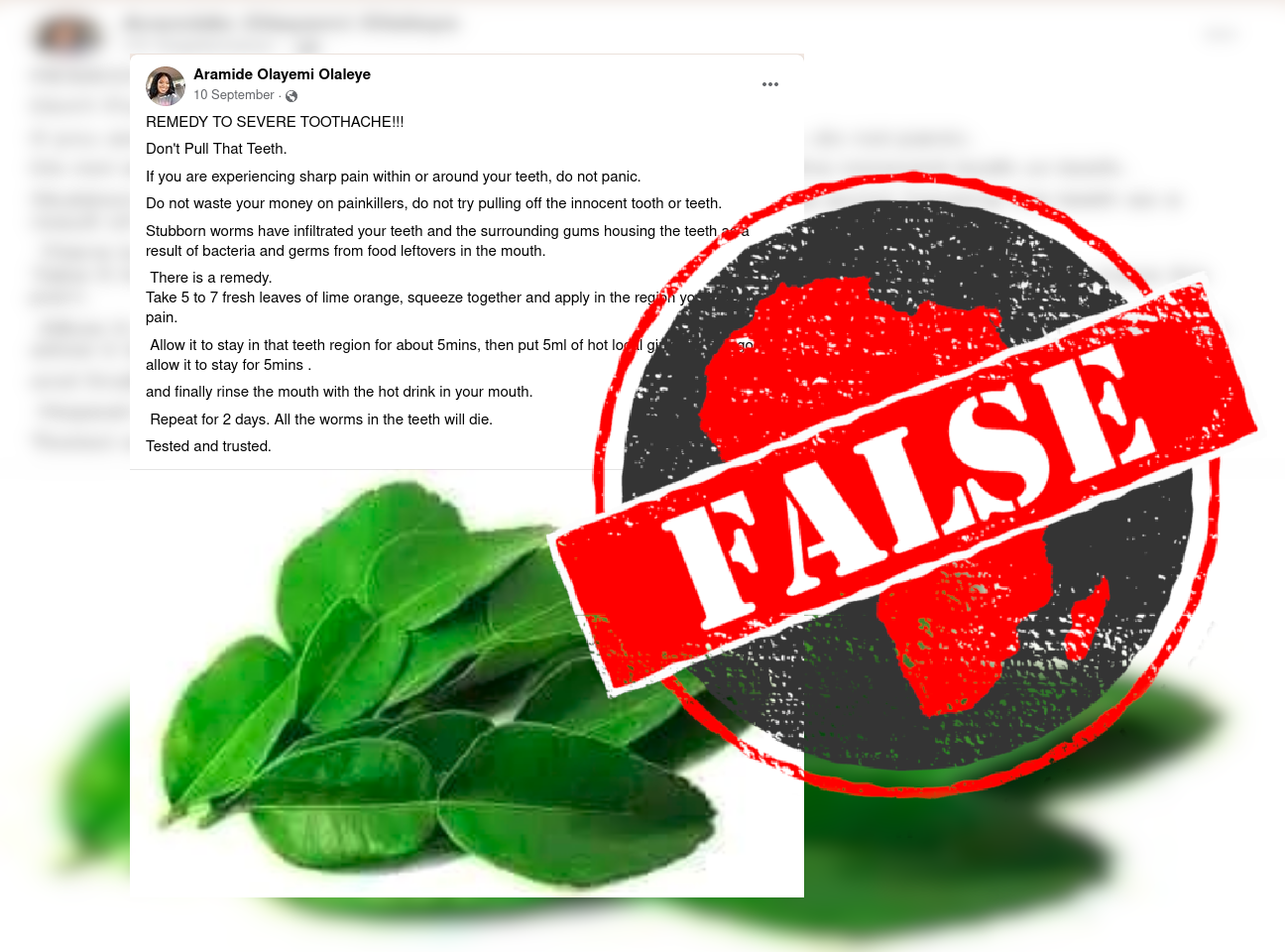IN SHORT: A Facebook post claims that a mixture of lime leaves and dry gin can cure toothache. This is false and could be harmful.
“Don't Pull That Teeth. If you are experiencing sharp pain within or around your teeth, do not panic,” reads a Facebook post claiming that lime leaves and the alcohol gin are a remedy for severe toothache.
The post says that the cause of the pain is that “stubborn worms have infiltrated your teeth and the surrounding gums”.
It then gives the “remedy”: “Take 5 to 7 fresh leaves of lime orange, squeeze them together and apply in the region where you have the pain. Allow it to stay in that teeth region for about 5 minutes, then put 5ml of hot local gin drink (ogogoro), allow it to stay for 5 minutes.”
The post advises people not to buy painkillers or have their teeth pulled, but to “repeat for two days and all the worms in the teeth will die”.
The same advice has also been posted on Facebook here, here, here, here and here.
But can lime leaves and gin cure toothache? We checked.

See a dentist, says dentistry professor
Toothache is usually caused by tooth decay, infection, problems with braces and more.
The idea that tooth worms cause toothache and decay is a misconception that dates back thousands of years. But it is a superstition.
In 2021 fact-checking organisation Dubawa debunked the claim that lime leaves and dry gin could cure toothache, concluding there was no scientific evidence to support it.
Arotiba Godwin, a professor of oral and maxillofacial surgery in the faculty of dental sciences at the University of Lagos, said it was not true that lime leaves and gin could cure toothache and that it was instead advisable to see a qualified dentist.
“That is not true. When the pain is at its peak, nothing can cure it. You have to see a dentist to reduce the pain. No amount of dry gin, analgesics or antibiotics will solve the problem. It can only provide temporary relief,” Godwin said.
He also warned that if the toothache is not treated in time, the patient's life could be at risk.
“If the infection spreads to some veins, [it] can travel directly to the brain and if that happens, the patient’s life can be endangered. It is advisable to see a dentist.”
Republish our content for free
For publishers: what to do if your post is rated false
A fact-checker has rated your Facebook or Instagram post as “false”, “altered”, “partly false” or “missing context”. This could have serious consequences. What do you do?
Click on our guide for the steps you should follow.
Publishers guideAfrica Check teams up with Facebook
Africa Check is a partner in Meta's third-party fact-checking programme to help stop the spread of false information on social media.
The content we rate as “false” will be downgraded on Facebook and Instagram. This means fewer people will see it.
You can also help identify false information on Facebook. This guide explains how.


Add new comment